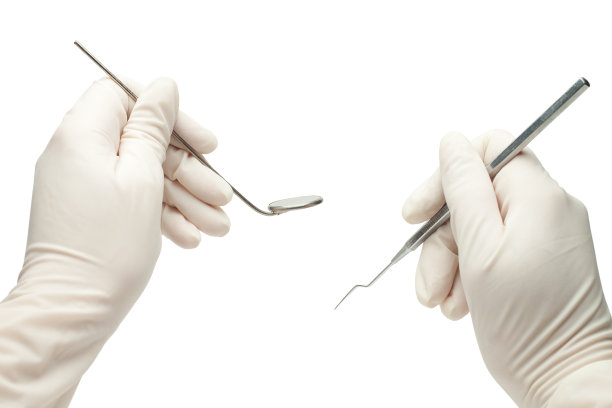Summary: Following dental filling procedures, it is crucial for patients to take essential precautions to ensure optimal care and longevity of their treatments. This article emphasizes four main aspects: dietary restrictions, oral hygiene practices, follow-up appointments, and awareness of potential complications. Each aspect highlights specific actions that patients can take to preserve their dental health after fillings, ultimately leading to better outcomes and prolonged durability of the dental work. This guidance aims to empower patients in managing their oral care effectively, fostering a mindful approach for maintaining the integrity of dental restorations.
1. Dietary Restrictions After Dental Filling

After receiving a dental filling, patients should consider dietary restrictions that can impact the integrity of their fillings. It’s recommended to avoid hard, sticky, or chewy foods for at least 24 hours. Foods such as popcorn, nuts, and chewy candies can dislodge or damage new fillings, especially composite ones that are more susceptible to pressure.
In addition, patients should also steer clear of hot and cold beverages immediately after the procedure. Extreme temperatures can cause dental materials to expand or contract, potentially leading to discomfort or filling loss.
Instead, patients are encouraged to consume soft, non-sticky foods, such as yogurt, mashed potatoes, or smoothies. These choices not only minimize the risk of complications but also provide necessary nutrition during the initial recovery phase.
2. Importance of Oral Hygiene Practices
Maintaining optimal oral hygiene is vital after dental fillings. Patients should continue their regular brushing and flossing habits but with a few adjustments. Gently brushing the filled area and avoiding vigorous scrubbing can help preserve the new filling and surrounding gum tissue.
Moreover, it’s recommended to wait a short period (often around 24 hours) before resuming regular flossing. This precaution helps to avoid unnecessary irritation or disruption to the newly placed filling.
Incorporating antibacterial mouthwash into the oral care routine can also provide additional protection against bacteria, further ensuring the longevity of the filling. Patients should consult their dentist for recommendations on effective mouthwash products suitable for their specific needs.
3. Follow-Up Appointments for Preventive Care
Scheduling follow-up appointments with a dentist is imperative for monitoring the condition of dental fillings. Generally, dentists recommend a check-up within six months after the filling procedure to assess the fillings integrity and surrounding tissues’ health. During these visits, any irregularities can be addressed promptly, preventing more extensive damage.
Additionally, these appointments allow the dentist to provide personalized guidance on ongoing care and any adjustments needed for comfort. Regular professional cleanings can also enhance oral hygiene, further supporting the durability of fillings.
Patients should not hesitate to contact their dentist if they experience unusual symptoms, such as pain, sensitivity, or visible damage to the filling. Early intervention can often lead to simpler solutions and safeguard oral health over the long term.
4. Recognizing Potential Complications and Symptoms
Being vigilant about potential complications is essential following dental filling procedures. Patients should be aware of symptoms that may indicate a problem, such as persistent pain, swelling, or changes in the fillings appearance. These signs could signal that the filling is compromised and requires immediate dental attention.
Furthermore, patients should also recognize the difference between normal post-procedure discomfort and unusual pain, which may warrant further investigation. Any hesitation in seeking assistance can lead to intensified issues, including decay around the filling or even the need for further restorative work.
Overall, remaining informed and observant empowers patients to take proactive steps in their dental health journey, ensuring that any complications are addressed before they escalate.
Summary:
In conclusion, the care and longevity of dental fillings depend significantly on the patients actions post-procedure. Following dietary restrictions, maintaining proper oral hygiene, keeping up with follow-up appointments, and being aware of complications can greatly enhance the outcomes of dental work. Such practices not only preserve the dental restoration but also foster overall oral health, allowing patients to enjoy the benefits of their fillings for years to come.
This article is compiled by Vickong Dental and the content is for reference only.
Vickong Dental
Vickong Dental is a large medical group established in Hong Kong in 2008 by professors from well-known medical universities in Guangdong and Hong Kong, as well as medical doctors from key national '985' universities (including Master's supervisors and senior professors). The chain of branches brings together expert dentists with PhDs and Master's degrees from Hong Kong and Mainland China, committed to providing high-quality dental treatment.
"Vickong Dental Practices the University Motto of 'Healing and Serving Society,' with a Stable Operation for Sixteen Years. It Has Been honored with Hong Kong Enterprise Leaders's Choice,' and is a Global Trusted Implant Center for the Nobel Implant System. Recommended by Hong Kong Metro Broadcast and Guangdong Television, it Serves Customers from Over Thirty Countries and Regions, Gaining the Trust and Favor of Citizens from the Guangdong-Hong Kong-Macau Greater Bay Area and Surrounding Cities.

Thousands of customers' unanimous praise
The most recognized and highly recommended dental service by customers in the Guangdong-Hong Kong-Macau Greater Bay Area
We Ensure You Receive Detailed Care and Attention Here
Hong Kong standards, Shenzhen prices, Your Trusted English-speaking dentists

Vickong Dental Medical-Grade Instrument Disinfection Process
Vickong Dental Medical-Grade Instrument Disinfection Process

Vickong Dental Chain: A Warm and Comfortable Environment for Treatment






Appointment Hours

Q&A
Why choose Vickong Dental?
Vickong Dental practices the university motto 「Medicine to Benefit Society」, with each branch bringing together highly qualified dentists with doctoral and master’s degrees from Hong Kong and the Mainland, and has maintained seventeen years of steady operation。Recipient of 「2024 Hong Kong Enterprise Leaders Brand」, 「2025 Hong Kong Enterprise Leaders Brand」, a Nobel Biocare Global Trusted Implant Center, and a brand recommended by Metro Radio Hong Kong and Guangdong TV。
To date, we have served customers from more than thirty countries and regions,earning exceptionally high word-of-mouth recognition and trusted recommendations from residents across the Guangdong-Hong Kong-Macao Greater Bay Area and surrounding cities
We have eight major branches in Zhuhai、Shenzhen,and a consultation and service assurance center in Hong Kong,so you can book a free consultation at any time for any questions,which is very reassuring.
If I do not accept the quotation after the CT scan, will I be charged??
No! As long as the actual treatment has not started, you will not be charged any fees.
Will there be any additional charges during the treatment process?
No, there won’t be any additional charges. Before treatment begins, we will clearly explain the treatment plan and its corresponding fees. Only after the patient agrees and signs the consent form will we proceed with the dental service.
Can I pay in Hong Kong dollars?
Yes. Vickong Dental accepts payment in Hong Kong dollars. The amount will be converted based on the exchange rate of the day, and the applicable rate will be clearly communicated to you in advance.
Can I reschedule my appointment at any time?
Yes. Please contact us via **WeChat** or **WhatsApp** as early as possible, providing your original appointment time and details, along with your preferred new date and time slot for rescheduling.













